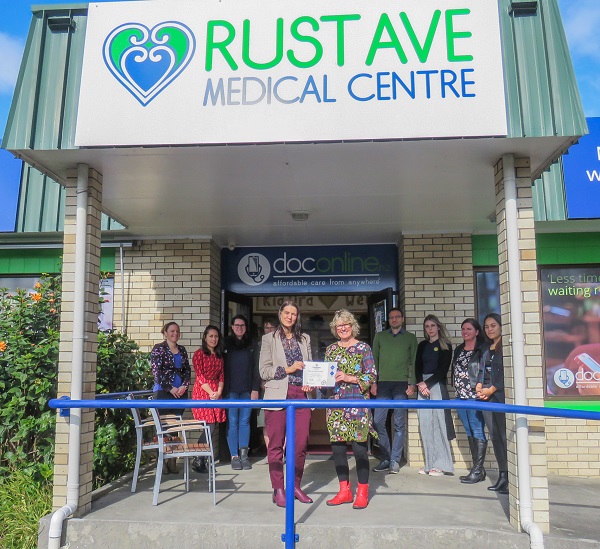Practices
Northland general practice achieves New Zealand first in equity
A Whangārei general practice is leading the country in its commitment to more equitable health outcomes for its patients after becoming the first in New Zealand to achieve Cornerstone Equity accreditation.
Rust Avenue Medical Centre was awarded its Royal New Zealand College of General Practitioners (RNZCGP) Cornerstone Equity accreditation in August this year, after beginning its quality improvement journey with the renewal of its Foundation standards in 2019.
Every general practice in New Zealand must achieve RNZCGP Foundation accreditation every three years as a mandatory quality standard. From there, the next step up in the College’s quality framework is Cornerstone. Practices that choose to progress to Cornerstone level can currently complete an Equity module and a Continuous Quality Improvement module. A teaching module is currently under review.
Equity is particularly important to health care in Northland because there are significant disparities in health outcomes between different groups in the community. The region has a high Māori population, as well as a diverse range of other groups who have specific health needs or poorer health outcomes compared with the general population.
Practice manager Nadine Whitton says completing the Equity module has “definitely benefited the practice”.
“Equity is really important. We’re more open and aware of it now. We’ve improved our target boards to include a wider range of ethnicities,” she said.
“Another thing we’ve done that I’m really pleased about is campaign to get better ethnicity data. I asked Predict Enigma to put ethnicity data in some of their reports, and just last week I went into the reports and it had been done!”
Reports from Predict Enigma go to Rust Avenue Medical’s clinical team to identify patients with diabetes who need their annual diabetic review. Adding ethnicity data means the team can now quickly and easily prioritise target groups to help achieve more equitable outcomes.
“Next, I’m working on getting our practice management system to provide ethnicity data for the patient portal uptake, so we can see if we’ve got equitable uptake of the portal. That sort of thing benefits other practices too,” Ms Whitton said.
Mahitahi Hauora chief executive Jensen Webber congratulated Ms Whitton and the Rust Avenue Medical Centre on their achievement.
“It’s great to see Rust Avenue Medical Centre’s commitment to achieving more equitable health outcomes for whānau and communities. Equity is central to the Mahitahi Hauora kaupapa. It’s about getting the same outcomes for everyone, and it’s not easy to achieve that – everyone has different needs, so our mahi for different groups in our community needs to be responsive. We encourage and recognise the mahi our practices do in this space, and our improvement partners and Whānau Engagement team are always here to provide support.”
The Cornerstone Equity module aims to set practices up to deliver sustainable health equity outcomes. It focuses on four areas, where practices need to develop pro-equity elements: the practice team; organisation and leadership; service development and delivery; and workforce.
“It looked monumental. The College asked me to try it and give them feedback,” Ms Whitton said. “They said it was about making a commitment to start and I didn’t have to finish it all. But we did everything!”
The Rust Avenue team changed its approach to human resources to reflect an equity focus – updating policy, including equity questions and an equity champion in recruitment interviews, and analysing candidates’ answers to ensure they would fit into a pro-equity practice. They also changed job descriptions, person specifications and contracts to reflect an equity focus, added equity to staff performance reviews, and carried out a gap analysis to ensure their team reflected the ethnic makeup of their community.
Practice owners Pam and Conlin Locke showed their commitment by releasing time for Ms Whitton and her staff to work on equity.
“I wrote a training module for our staff using the excellent equity resources the College provided, and we all completed training in racism, bias and discrimination. Then we looked at all our services to improve equity, and wrote an equity plan,” Ms Whitton said.
Ms Whitton said she was “tickled pink” when Heidi Bubendorfer, principal quality advisor at RNZCGP, contacted her to say Rust Avenue Medical Centre was the first practice in the country to achieve the Equity module.
